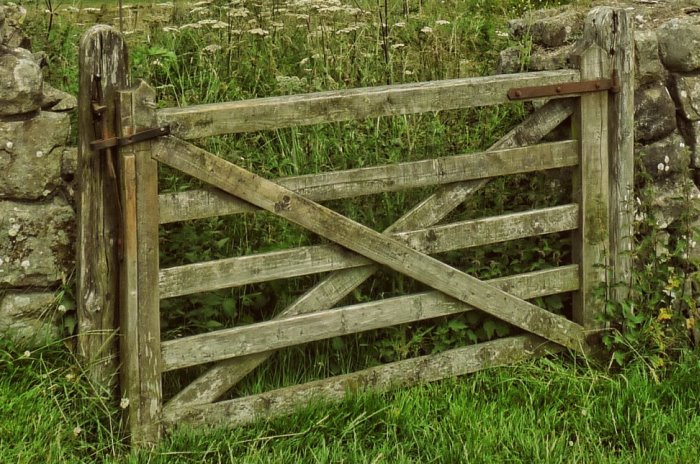Into the Sheepfold

Today’s Christian subculture has developed a sophisticated theology of Self. It’s all about a personal relationship with Jesus, we say. Jesus meets me where I am, we say. What else matters as long as I love Jesus? The common good? Community? Church? Bah! Who needs ‘em? I’m fine on my own, thank you very much. I’ve got my Bible and my cross and my Jesus; and I’ll be fine just packing them all in my car and driving out to the beach this Sunday where I can find a spot to do church all by myself. No, as far as I can see anyway, nothing else matters except that I love Jesus!
We love modern Christianity, because so much of modern Christianity is all about me! But this modern theology of self just doesn’t jibe with biblical witness. Consider the gospel from the fourth Sunday of Easter, John 10:1-10. Here we encounter sheep, shepherds, a sheepfold, a gatekeeper, and a gate. “I am the gate,” Jesus says. The sheep that enter and exit the sheepfold by that one and only gate will find food, water, safety, community—abundant life.
That’s our goal: abundant life through Jesus, together.
The curious thing about abundant life is that it’s offered wherever the sheep are supposed to be. That is, when the sheep exit the sheepfold by the light of the morning, abundant life is found at pasture, outside the sheepfold; and when they enter the sheepfold by the darkness of the evening, abundant life is found inside the safety of the sheepfold.
But we sheep are shortsighted. And we are armed with a sophisticated theology of self. So, naturally, we want to pass through the gate and attain abundant life on our own terms.
By day, we go out to pasture and enjoy ourselves. It’s sunny. A soft zephyr plays on our wool. Food and water are abundant. Our friends are nearby yet far enough away so that each of us is comfortable; we’ve all got sufficient personal space, our own little, individual patch of grassy hillside. Right now all is well; life is unquestionably abundant!
At evening, however, when the sun is setting and things all around us grow dark and obscure, we return to the sheepfold where we enter together by that one, narrow, constricting gate. And now, inside the sheepfold with all the other sheep, things aren’t so nice as they were by the clear, peaceful, zephyry light of day. Now it’s crowded, dusty, and smelly. Now we sheep are in each other’s faces. Now there’s no personal space whatsoever. Now nothing about life feels abundant—except for the abundance of surrounding unpleasantness! Now, in other words, we’ve got something to complain about.
So we look around and begin to articulate the things we don’t like, our sources of discomfort. We grumble about the dust and smells and, worse, the people we feel are responsible for causing our personal discomforts: the other sheep, the shepherds, the gatekeeper, even the gate himself.
And thus we lose our focus. Oh, the gate’s still there, somewhere in the back of the mind. But it’s not the focal point. Instead, now it’s all the dust and smells and lamb chops in our face. And we don’t like this! So, forgetting that here too, inside the sheepfold, abundant life may be found, we determine to pass through the gate solo, on our own terms.
Now, it’s not obvious from the English: in our tongue the word “sheep” can be either singular or plural. In the Greek, however, it is obvious: everywhere in this passage “sheep” is plural! Always and everywhere the sheep enter and exit through the gate together.
Do you know what happens when we try to enter or exit solo? The gate is shut and locked!
We have not been called to focus on our own, individual patch of grassy hillside. We have not been called to focus on the petty disagreements we have with each other and the management. We have not been called to pass through the gate on our own terms. Rather, we have been called to corporate life together, with one focus: Christ and his mission to bring abundant life to the world.
In contrast to the present-day theology of self we hear all around us, the Christian religion is, and always has been, about the one body of Christ and never about me as an individual. Closer to home, the Episcopal Church is, and always has been, about the common good above my own, personal comfort.
And thank God it’s so! Because, do you know what happens when we forget this—when we make it all about my personal relationship with Jesus; when we ask questions like, what else matters as long as I love Jesus? Everything gets inverted. Instead of being transformed into the perfect image of Christ, we transform Christ into my own, far-less-than-perfect image. Instead of asking, “How can I serve Christ?” we expect him to serve me.
But it’s not about me. It’s about the gate—and paying attention to it; to when it opens and when it shuts, and passing through when I’m supposed to: along with everyone else. It’s about abundant life, being transformed—me together with you and the world—into the perfect body of Christ.
During this time of diocesan transition, let’s not be shortsighted. The gate is open. We are passing through, together, with Bishop Mathes. It may feel like we’re entering a time of discomfort and obscurity. But—whether going out into the clarity of daylight or coming into the obscurity of darkness—whenever we pass through the gate together we are accomplishing Christ’s mission. Remain focused on the gate, Jesus Christ, through whom we may know abundant life together! +